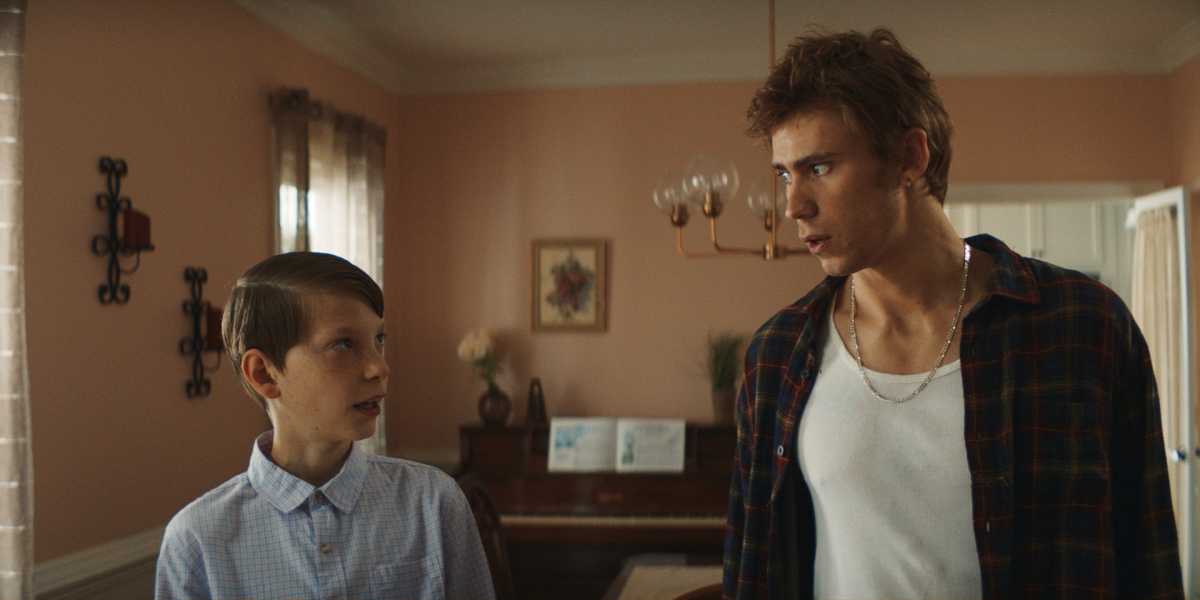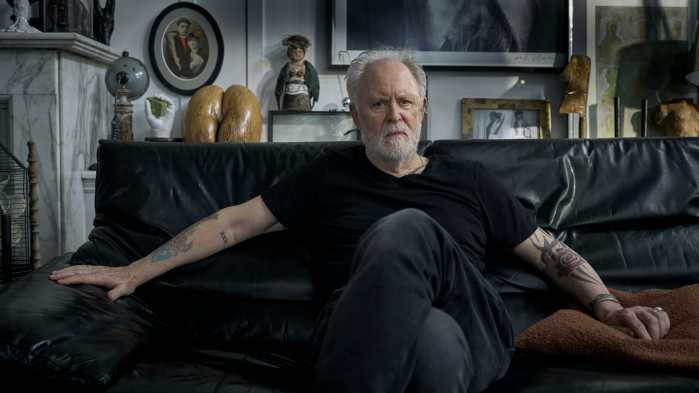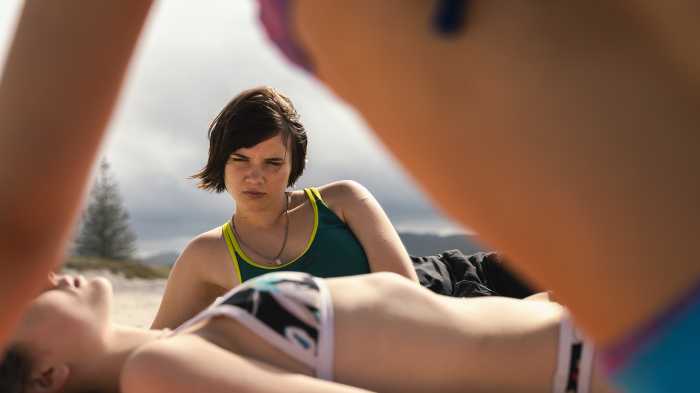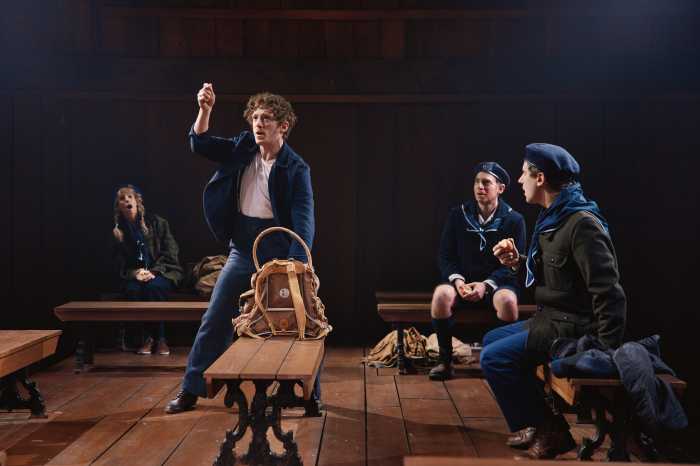Griffin Nafly (Everett Blunck), the 14-year-old protagonist of the heartfelt coming-of-age comedy, “Griffin in Summer,” obsesses over staging his latest dramatic production, “Regrets of Autumn,” to equity standards. However, Griffin’s aspirations are met with a distraction in the form of Brad (Owen Teague), a bad boy handyman. When Griffin learns that Brad is a failed New York City performance artist, he starts obsessing over the decade-older hunk, plying him with whiskey, as well as texting and meeting him regularly.
Brad is oblivious to Griffin’s obvious crush, but he agrees to appear in Griffin’s play — a drama about buying into the idea of love only to discover that it is a black hole of betrayal and despair. Soon, life imitates art, and Griffin must confront his desires head-on.
Out gay writer/director Nicholas Colia’s sensitive film features both cringe-inducing moments and scenes of deadpan comedy, along with a pitch-perfect performance from Blunck and a sly supporting turn from Teague. Colia spoke with Gay City News about his auspicious feature film debut.
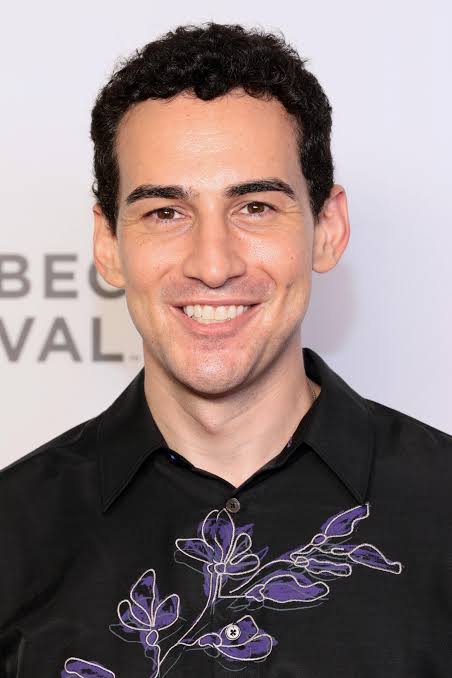
Why tell this story as a film, rather than a play or even a YA novel? What made it cinematic?
[Laughs.] Those other things could still happen! There is a big history of coming-of-age indie movies, and certainly, for first-time filmmakers, they are often pseudo-autobiographical, first love movies. I thought it would be funny maybe to subvert some of the tropes of those types of movies and do one with a different sensibility than some of the more wish-fulfillment ones, or tragic ones, that we have mostly seen in this space.
Is Griffin based in part on personal experience? What were you like as a teen? Did you stage plays you wrote in your basement and micromanage your friends, conspire to be with your adult crush, and absorb the fallout from your parent’s marriage?
Only the first part. The film is not my autobiography. The film’s parents are not my parents. The film is not [depicting] my family life. I didn’t have that kind of crush on an adult as a kid. But I definitely did spend my summers making films and theater out of my parents’ basement. I was not a playwright; I was more interested in comedy, like Neil Simon, and taking things way, way, way too seriously.
Nobody can relate to that!
Yeah. [Laughs.]
Can you talk about your first crush?
My first crush would be a much different film. I was not a kid. I made a short film about a kid who had a crush on an adult, and traveling with that film to festivals, I found out that that is a very universal experience. I was interested in the crush element idea of first love or unrequited love that is transformative; the notion that through a first love, [the] experience can change your life in a million different ways and open you up and make you better.
The film’s tone is deadpan and awkward. What decisions did you make about the humor and the cringe-factor?
The tone was tricky to figure out. It went through some evolutions. The script read as more Capital-C Comedy. Then we cast Everett, who was very funny, but also dramatic. He has a huge emotional intelligence and added layers I had not written, which was wonderful. In the editing room, tone was a big thing. The score related to this as well. Is this too goofy for a grounded movie? Is this too sad for a comedy? I was trying to make things feel as honest and authentic to this experience as possible. The funny/cringey thing about writing about a 14-year-old is that we [the audience] can see things that he can’t see. It can be a hopefully funny slow-moving car wreck.
Can you talk about the crafting of both the play within a film and Brad’s performance art in the film? You reveal the characters in these artistic episodes.
Friends of friends of mine, who are in or around the performance art world, see Brad’s art/solo show and it does not register as comedy. The thing about performance art is that you can’t really satirize it. It’s too far out there. My thought was to do something that feels authentic to this character. I asked my friend in touch with this world, “What would a 25-year-old straight guy in Bushwick doing performance art be doing?” And she said, “It’s a lot of work with orifices,” so that’s what we did. It is up to audience whether it is good or bad.
Similarly, Griffin’s play, we’ve had people who say his play is bad, or so funny, or so amazing. I tried not to have a judgment on it in that sense. There is no such thing as a 14-year-old playwriting prodigy. For Griffin, who is living where he is living, and consuming the media he is consuming, this is what is his idea of a play would be or what theater is. Like many people who want to be creatives, Griffin starts imitating the stuff he likes, so it’s more derivative, but he finds a little bit of his voice.
What observations do you have about Griffin, who is very much an adult in a teen’s gawky body? I was siding with him the whole time but there were times when I didn’t like what he did.
I think a lot of that credit goes to Everett. When we were casting Griffin, Everett had a natural likability about him and people really lean in. We auditioned kids who were like Griffin in real life, and they were not great actors. Keeping the audience on his side is a big deal. The age does help. If this was a 24- or 34-year-old guy struggling with writer’s block, annoyed with his friends, and developing crushes on straight guys, that would be less endearing. Griffin can get away saying and doing things that, if he was an adult, the audience would not stay with him.
What about Brad, who is pretty much a functioning alcoholic and unaware of Griffin’s intentions? What made him the right foil for Griffin?
Griffin is living in a bland and artless town and is very alone. His friends are kind of into theater but not the way he is. Griffin has never seen someone who looks like Brad before. Brad’s tattoos, and the way that he dresses, initially draws him in. As they start talking and Griffin hears that Brad was living in New York City, he is instantly impressed and intimidated by Brad. It becomes a mutually beneficial thing because Brad’s ego is struggling, which makes them a good match.
I love the scene where Brad feels pathetic, and Griffin is encouraged. Both see the other in a way they don’t see themselves, but they also misread the other’s intention. Who gave you inspiration, or believed in you to help you realize your dream?
I was luckier than Griffin in the sense that my parents were over-supportive as opposed to unsupportive like Griffin’s are. My parents aren’t Brad’s mom, but they are over-encouraging. I was luckier than Griffin in that I still have friends who I did theater with who were on my wavelength and were as crazy serious as I was about it. I was lucky to find a crew amongst my peers.
“Griffin in Summer” | Directed by Nicholas Colia | Screening at Regal Union Square on Aug. 27 at 7 p.m.; post-screening Q&A will feature actors Owen Teague and Johanna Colón, along with writer-director Nicholas Colia | Distributed by Vertical

